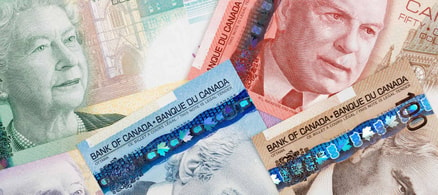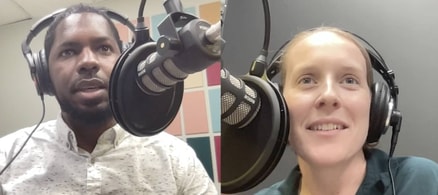Update your budget
The start of the school year is a good time for parents and students to redo their budgets.
Parents will likely know what their child-care costs will be. That said, you'll also have to budget for unexpected expenses for your kids, such as field trips and special activities. If you're unsure how much to budget, speak with your child's educator, as they can give you a rough idea of what to expect.
Students in college or university that aren't relying on the bank of mom and dad will also need to update their budget.
First, take a look at your income, whether that be from working or loans, and then calculate your expenses. You want to ensure you're not spending more than you make so you graduate with minimal student debt.
Maximize Your Tax Refund with TurboTax Canada!
Simplify tax season with this user-friendly software. Get step-by-step guidance, maximize deductions, and file with confidence. Trusted by millions, TurboTax Canada ensures accuracy and peace of mind. Start your taxes today and get the refund you deserve
Get the tax refund you deserveTeach your kids real money skills
Teaching your kids fundamental money skills is easy if you have the right app. There are dozens of money apps out there, but one I like is Mydoh, a money management app that allows kids to make their own earning and spending decisions. These choices are essential for building a solid financial foundation.
With the app, parents can assign tasks to their kids — such as taking out the trash or doing laundry — and then be rewarded with cash for completing them. The money is paid out weekly to their Smart Cash Card (a physical prepaid Visa card). As the money accumulates, kids feel a sense of accomplishment and get motivated. Mydoh gives kids some financial independence while still giving parents oversight.
Other apps worth checking out include Mint, YNAB (You Need A Budget), and Chore Check. Most of these apps have free trials, so you can test them out before committing. Money apps help families open up the conversation about financial literacy. This will encourage kids to make smarter money decisions.
More: Personal finance tips for freshmen
Be a year-round savvy shopper
The start of the school year can be expensive as parents may purchase new clothes and electronics for their kids, but other expenses will come up throughout the year. To ensure you're never paying more than you have to, download a flyer comparison ap, such as Reebee and Flipp.
With a flyer comparison app, you can see what’s on sale at your local retailers. This includes grocery stores, big box stores, and more. If you plan your purchases, or even your grocery list, around what’s on sale, you can save big.
For those looking to turbocharge their savings, you could price match at participating stores. Stores with a price matching policy will require you to show the competitor's flyer with the advertised lower price. With an app, you'll have every competitor's flyers at your fingertips, so you can quickly price match multiple items.
You could even put money back in your pocket by shopping through a cash back program such as Rakuten, Shopper Army and Great Canadian Rebates. If you use a cash back credit card when paying, you’ll put even more money back in your pocket.
Grow Your Savings Effortlessly with Moka
Automate your savings with every purchase and watch your money multiply. Moka rounds up your transactions and invests the spare change. Start building wealth effortlessly today. Join thousands of Canadians embracing financial freedom with Moka
Sign up nowBuild their credit score
Students starting their post-secondary education will want to start building their credit scores. A credit score is a number between 300 and 900. The higher your credit score, the more creditworthy you are in the eyes of lenders. This number can be essential if you need a loan in the future, such as a mortgage or auto loan.
Fortunately, building your credit score is easy. All you need is a credit card under your own name. Every institution will have student credit cards, so speak to yours about getting one. Since most students are on a low income, getting a credit card with no fee is ideal.
Once approved for a credit card, be sure to use it responsibly. That means paying your bills on time and in full to avoid any interest charges. As you make your payments, your history will be reported to the credit bureaus: Equifax and/or TransUnion. Creating a record of timely payments can help to improve your credit score. The average score in Canada is 672 as of early 2022 and young Canadians could be well equipped to instil good habits early and surpass that.
Teach them skills they may not learn in school
While efforts have been made to introduce financial literacy into the education system, it may not be enough. Additionally, most Americans aged 18 to 24 said they would ideally like to learn about money at home. The same may apply for their Canadian peers.
The best way to teach your kids about money may be to show them how you handle the family finances on a day-to-day basis. The next time your credit card bill arrives, show it to your kids and explain how credit cards and interest charges work. You could also go over each line item with them as it'll give them a better idea of what expenses they can expect when they're older.
Another idea is to tell your kids about your job. Explain to them what you do, how much you make, and what steps it took for you to get there. Alternatively, you may want to discuss different career opportunities with them and the expected salary ranges.
Admittedly, talking to teenagers about potential careers is not an easy task. They may not know what they want to do or are interested in. That said, having the conversation early can have a significant impact as it may change their expectations or influence their course selections.
Sponsored
Trade Smarter, Today
With CIBC Investor's Edge, kick-start your portfolio with 100 free trades and up to $4,500 cash back.







